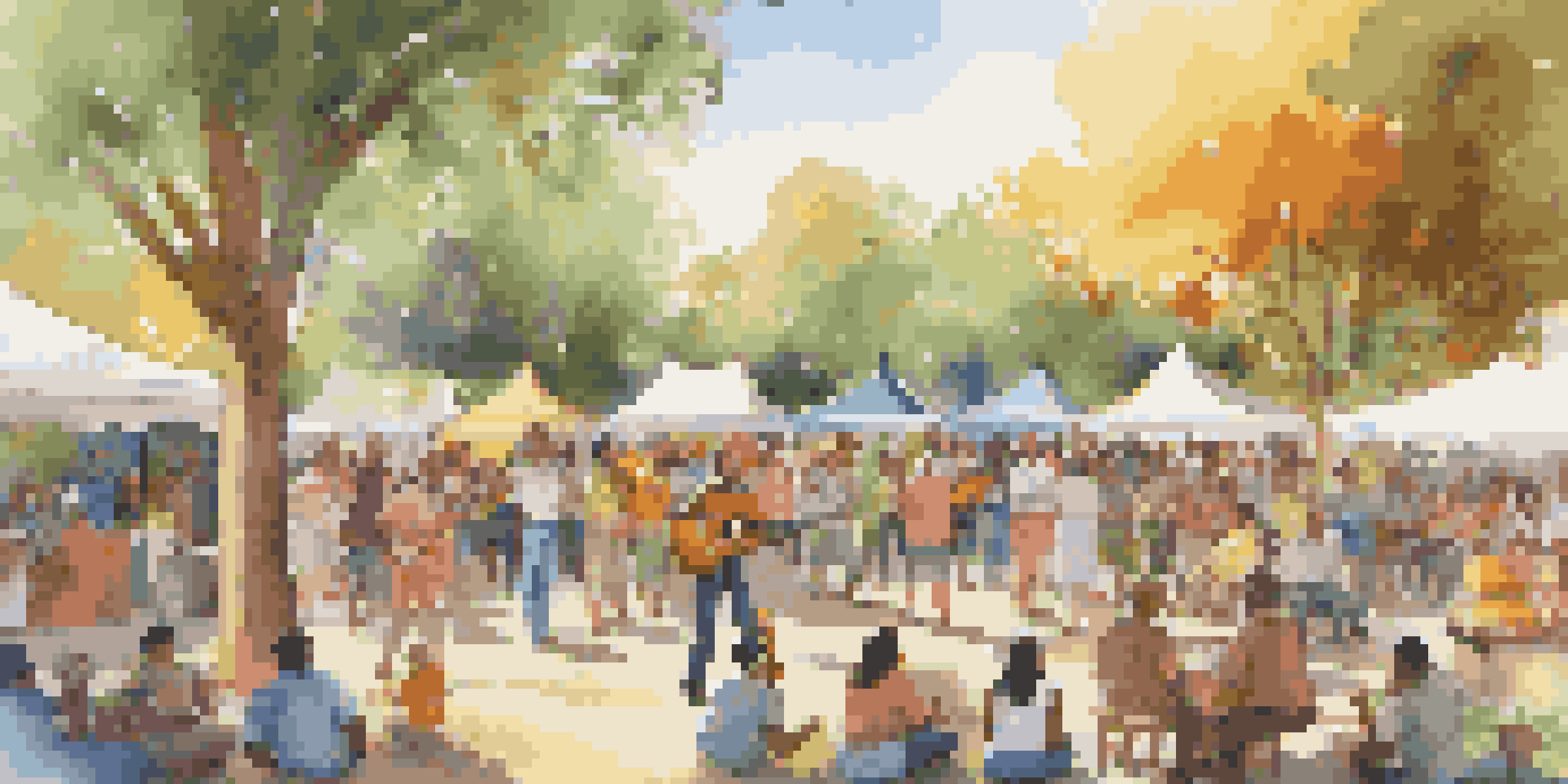The Role of Music in Engaging Marginalized Communities

Understanding Marginalized Communities and Their Challenges
Marginalized communities often face a host of challenges, including economic hardship, social exclusion, and limited access to resources. These barriers can stifle creativity and self-expression, crucial elements for personal and collective empowerment. By understanding the unique struggles of these groups, we can appreciate how music serves as a vital outlet for their voices and stories.
Music as a Tool for Connection and Unity
Music has an incredible ability to bring people together, transcending language and cultural barriers. In marginalized communities, shared musical experiences can foster a sense of belonging and solidarity among individuals who may feel isolated. Whether it's through community events, local concerts, or informal gatherings, music creates spaces where connections are forged and relationships strengthened.
Empowerment Through Expression and Storytelling
For many in marginalized communities, music offers a powerful means of expression and storytelling. It allows individuals to articulate their experiences, struggles, and aspirations in a way that resonates with others. By sharing their narratives through song, they not only validate their own experiences but also inspire others, creating a ripple effect of empowerment and resilience.
The Role of Music Education in Community Development
Access to music education plays a crucial role in fostering talent and creativity within marginalized communities. Programs that provide instruments, lessons, and mentorship can help nurture the next generation of musicians and artists. By investing in music education, communities can cultivate skills that not only enhance individual lives but also contribute to the cultural richness of the entire community.
Creating Safe Spaces for Artistic Exploration
Music provides a safe space where individuals from marginalized backgrounds can explore their creativity without fear of judgment. These environments encourage experimentation and collaboration, allowing artists to hone their skills and express their unique identities. Safe spaces also promote mental well-being, as individuals find solace and support within their artistic communities.
The Influence of Music on Social Movements
Throughout history, music has played an integral role in social movements, often serving as a rallying cry for change. In marginalized communities, songs of protest and empowerment can mobilize individuals and galvanize support for important causes. This connection between music and activism highlights the potential for music to inspire social change and advocate for justice.
Fostering Cultural Heritage and Identity
Music is a vital aspect of cultural heritage, preserving the history and traditions of marginalized communities. By celebrating and promoting their unique musical styles, these communities can strengthen their identities and pass on their legacies to future generations. Engaging with traditional music not only fosters pride but also enriches the broader cultural landscape.
Looking Ahead: The Future of Music in Marginalized Communities
As technology continues to evolve, the ways in which marginalized communities engage with music will also change. Online platforms provide opportunities for wider exposure, allowing artists to reach global audiences. By embracing these advancements while remaining rooted in their communities, marginalized musicians can both honor their heritage and pave the way for future innovation in their art.